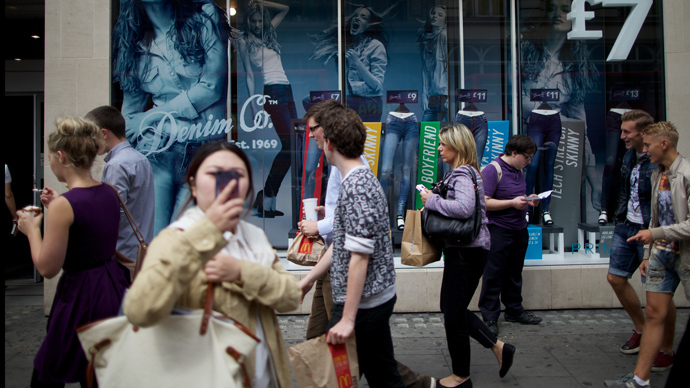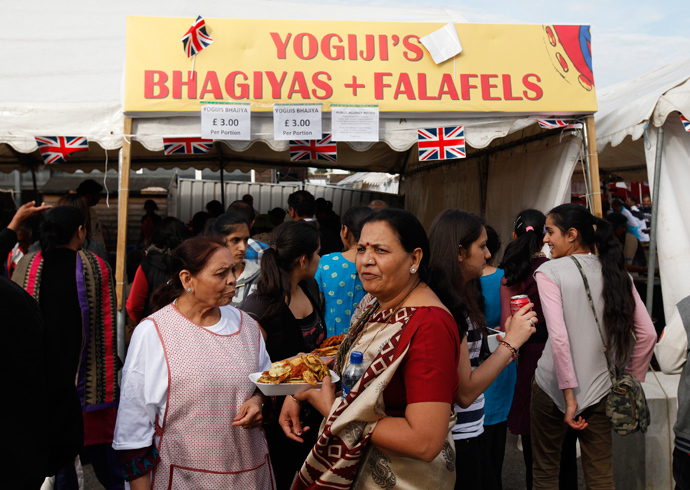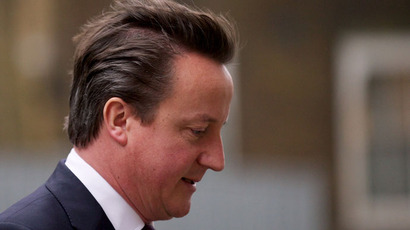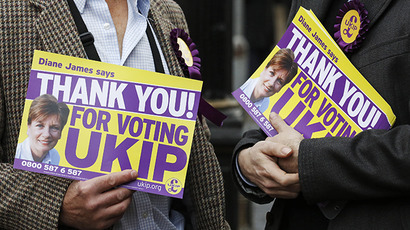East European migrants contribute $40bn to UK economy, study finds

Immigrants to the UK are a financial asset and have made a “substantial” contribution to the country’s economy over the last decade, a new study says. The findings appear to strongly contradict the rationale behind a harsh crackdown on migrants.
“The recent wave of immigrants, those who arrived to the UK
since 2000, and who have driven the stark increase in the UK’s
foreign-born population, contributed far more in taxes than they
received in benefits,” University College London said in a
statement accompanying two separate immigration studies on Tuesday.
Newcomers from European Economic Area countries have been found
to be the biggest asset to the country, paying roughly 34 percent
more in taxes than they obtained from the British government in
social benefits between 2001 and 2011.
Recent immigrants (those who arrived after 1999 and who
constituted 33 percent of the overall immigrant population in the
UK in 2011) were 45 percent less likely to receive state benefits
or tax credits than UK-born residents over the decade, UCL found.
Additionally, they paid 4 percent more to the UK government than
they received, according to the study. The figure for Brits
themselves stood at 7 percent.
The paper examined data on public spending and tax receipts,
while also utilizing statistics from the UK government’s Labour
Force Survey, which is based on information from some 150,000
families.
“Our research shows that in contrast with most other European
countries, the UK attracts highly educated and skilled immigrants
from within the EEA as well as from outside,” said Professor
Christian Dustmann, director of CReAM, who co-authored the study
with Dr Tommaso Frattini.
“What’s more, immigrants who arrived since 2000 have made a very
sizeable net fiscal contribution and therefore helped to reduce
the fiscal burden on UK-born workers,” he said.
Non-EEA immigrants received $160bn in benefits
However, the study also found that going back to 1995, non-EEA immigrants arriving between then and 2011 received more benefits than they had paid in taxes, the main reason being that they had had more children than people living in Britain.

Calculations showed that they received £100 billion more in
benefits and services than they paid in taxes.
“We've had roughly four million immigrants under the previous
government – two-thirds of those were from outside the European
Union,” said Sir Andrew Green, of the pressure group
Migration Watch, telling BBC Radio 4's Today program that the
report had “been spun.”
Migration Watch later tweeted that the study “underestimates
costs as [it] fails to recognise capital costs involved in
expanding infrastructure due to migration/pop growth.”
Governmental targets ‘not a useful tool’
UCL’s second study found that the UK governmental target to cut
net migration to the UK to less than 100,000 by 2015 is neither
“a useful tool nor a measure of policy effectiveness,”
according to the study’s authors, Professor John Salt and Dr
Janet Dobson.
The cuts have predominantly been made to highly skilled
professions and students from non-EEA countries. A drop in net
migration from 252,000 in 2010 to 176,000 in 2012 was deemed to
be reflective of the success of the policy.
However the latest data suggests the number of immigrants is
leveling out, rather than falling, leading to questions of where
future cuts would be made to maintain the target of cutting
immigration to less than 100,000 people by 2015.
Migration has been an ongoing source of controversy in the UK.
The latest attempted measure – a plan to require people from
India, Pakistan, and some African countries to hand over a cash
deposit of up to 3,000 pounds in return for a six-month visa –
was scrapped on Sunday, with a terse government statement saying:
“We decided not to proceed.”
The policy caused outrage at home and abroad, while exposing a
divide in the governing Conservative-Liberal Democrat coalition.
As part of the UK authorities’ anti-immigration campaign, vans
bearing billboards instructing illegal migrants to “Go home or
face arrest” were sent around six London boroughs. The pilot
scheme has come under fire over the past five months, with
complaints to a British advertising watchdog accusing the ads of
being offensive and inaccurate. The adverts were banned in October on the grounds that they were
misleading, rather than offensive.
As the country’s 2015 general election looms, Prime Minster David
Cameron is eager to show voters that he is taking a tough stance
on immigration, playing on public fears of a potential future
increase in migrants from Romania and Bulgaria.
In January 2014, citizens of European Union member countries
Romanians and Bulgarians will have free access to the British
labor market after EU travel restrictions are lifted, allowing
them unrestricted travel throughout the EU. Diplomats from both
countries estimate that some 35,000 people are likely to come to
the UK in 2014.
UK public opinion has been split over so-called “benefit
tourism” or “health tourism,” as mainstream media have
whipped up harsh anti-migrant sentiment in the country.














